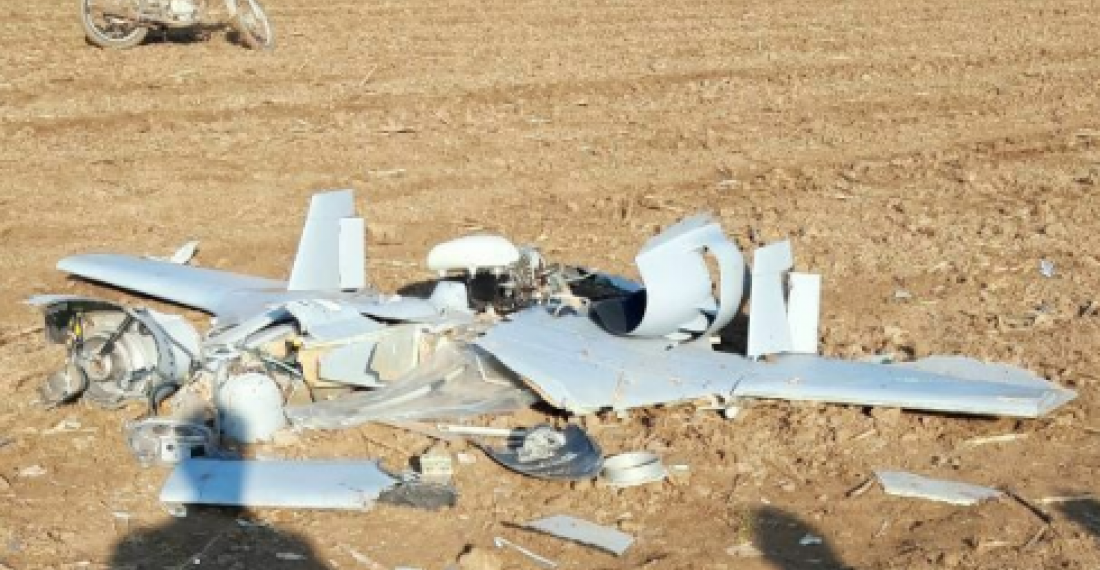Some of the heaviest fighting in the war being fought in the South Caucasus between Armenians and Azerbaijanis is taking place very close to the border with Iran, south of the line of contact in the Nagorno-Karabakh conflict zone. It is in this area that Azerbaijani forces are reported to have made advances, winning back territory that they had lost in the fighting in the 1990s.
On Tuesday (13 October) various media outlets reported that an unidentified drone had fallen on agricultural lands near the Iranian village of Uzun Tappeh-ye Olya, in the province of Ardabil, close to the Azerbaijani border.
The Deputy governor of Ardabil, Behrouz Nedaei, confirmed the crash of the drone in an exclusive interview with the Iranian news Agency. No casualties or public damage were reported. IRNA, Iran's official news agency says that the drone orignated from either an Armenian or an Azerbaijani source. As for the source of the drone, Nedaei said "The drone's identity and cause of its crash in the area are being investigated,".
Allegedly an #Israel-made IAI Harop drone has crashed inside #Iran, near the country's border with #Azerbaijan—#NagornoKarabakh war spillover. #Armenia#IRGC-AF will certainly reverse engineer the #drone—have done so with captured US RQ-170 Sentinel, RQ-4 Global Hawk. pic.twitter.com/La8kyDmYVH
— Khosro Kalbasi (@KhosroKalbasi) October 13, 2020
Military experts soon after elaborated on the make of the drone and said it was an Israeli made IAI Harop drone. They also speculated that Iran will want to examine the drone, possibly learning from its technology.
A drone identified by Twitter military experts as an Israeli-made IAI Harop has crashed in Parsabad Moghan County in Ardebil Province, which borders the disputed Nagorno-Karabakh region. Unclear if downed. Israel sells arms to #Azerbaijan. #Iran #Armenia #Karabakh #Arstakh pic.twitter.com/ZwAiKGfStY
— Kian Sharifi (@KianSharifi) October 13, 2020
Iran had previously warned both parties in the Nagorno Karabakh conflict from any escalation of the conflict into its own territory. Last weekend, no shots or rockets landed inside the Iranian territory which adjoins all of Armenia, Azerbaijan and the Nagorno Karabakh region. Several Iranian scholars and leaders claim that Israel is fuelling the war in the region by selling weapons to Azerbaijan.
source: commonspace.eu with agencies and twitter







